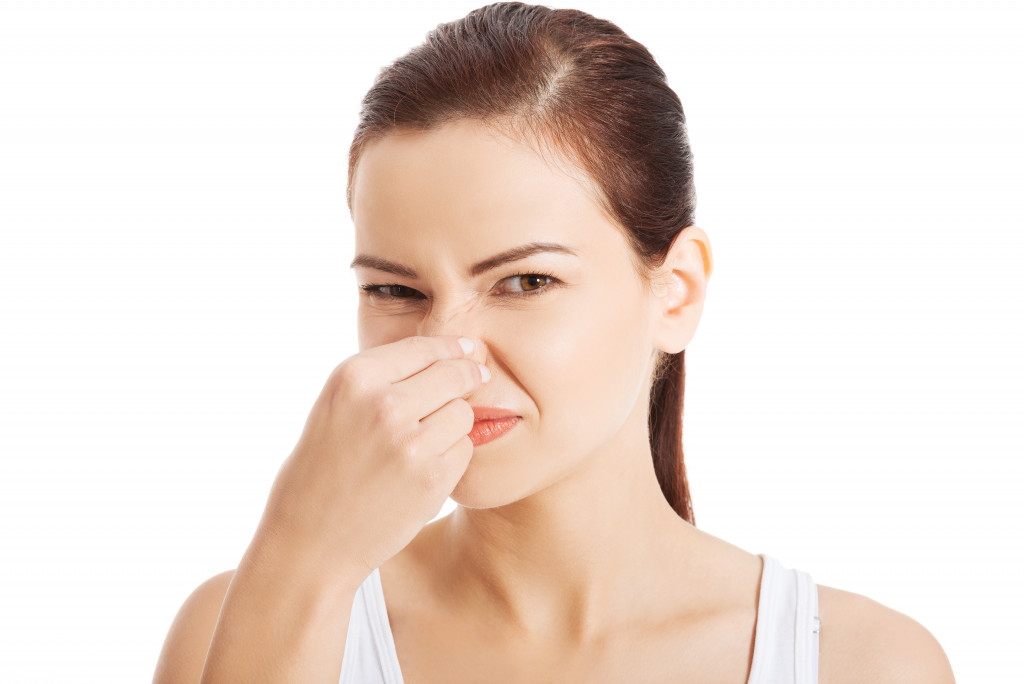- Indoor air can be more polluted than outdoor air, leading to allergies, respiratory issues, and chronic illnesses.
- Common household odors stem from poor ventilation, dirty carpets/upholstery, mold/mildew, garbage cans, pet odors, and a dirty swimming pool.
- Key solutions include ensuring proper ventilation, regular cleaning of carpets/upholstery/garbage cans, addressing mold/mildew, and pet odor management.
- Maintaining a swimming pool’s cleanliness and chemical balance can prevent strong chlorine odors and health hazards.
- Proactive measures to keep your home fresh include using natural cleaning products, and indoor plants, and addressing plumbing issues promptly.
No one likes to have a smelly home, but sometimes, despite your best efforts, you can’t shake that nasty odor. While there are many potential causes for bad smells in your house, identifying the root cause is the first step in eliminating them. Here are some of the most common reasons for your home’s filthy smell and how to deal with them.
Indoor Air Quality in Your Home
Studies have found that indoor air tends to be more polluted than outdoor air, leading to many problems, such as allergies, respiratory issues, headaches, and even chronic illnesses. A build-up of various things often causes poor indoor air quality. Here’s a look into the smells that could be polluting the air in your home and how to get rid of them:
1. Poor air ventilation
A lack of proper air ventilation can cause unpleasant odors, particularly in areas that tend to accumulate moisture, such as bathrooms and kitchens. Stagnant air can trap unpleasant smells and make them linger for longer. To solve this problem, it’s important to make sure that these areas have adequate ventilation, either through the installation of exhaust fans or by opening windows and doors.

2. Dirty carpets and upholstery
Carpets and upholstery are havens for dirt, dust, and debris, and if left unchecked, they can quickly start to emit off-putting odors. Regular cleaning is essential to keep your carpets and upholstery fresh and odor-free. Consider vacuuming your carpets weekly and scheduling a professional deep clean at least once a year.
3. Mold and mildew
Mold and mildew thrive in damp, dark environments, making them a common cause of musty odors in homes. While it’s important to identify and fix any sources of moisture that may be contributing to the problem, such as leaky pipes or damp basements, it’s also crucial to address the mold and mildew directly. If the problem is severe, you may need to call in a professional to help remove the mold and prevent it from coming back.
4. Dirty garbage cans
Garbage cans can quickly become a breeding ground for bacteria and other microorganisms that emit nasty odors. Make sure to empty your garbage cans frequently, and sanitize them regularly using a disinfectant solution. Consider investing in garbage cans with tight-fitting lids to help contain smells.

5. Pet odors
If you have pets, you know that they can sometimes leave behind unpleasant odors. Regular grooming and bathing can help keep your pets smelling fresh, but it’s also important to clean up any pet messes promptly. Use a pet-specific cleaner to remove any stains and odor-causing bacteria.
6. Dirty Swimming Pool
Lastly, if you have a swimming pool, clean it regularly and maintain proper chemical levels. A dirty swimming pool can cause a strong chlorine smell, which not only is unpleasant but also indicates that the water may not be safe for swimming. It might be good to look for reliable muriatic acid substitutes to ensure that the chlorine smell doesn’t linger and is balanced with other chemicals. This way, your swimming pool won’t smell as much, and it won’t be dangerous to smell its fumes.
Proactive Tips to Keep Your Home Smelling Fresh
While addressing the root cause of a smelly house is crucial, there are also proactive steps you can take to keep your home smelling fresh and clean:
- Open windows and doors regularly to let in fresh air.
- Keep indoor plants to purify the air naturally.
- Use natural cleaning products instead of harsh chemicals that could contribute to poor indoor air quality.
- Take out the garbage frequently and clean garbage cans regularly.
- Use baking soda or vinegar as natural deodorizers for carpets, upholstery, and other surfaces.
- Make sure to address any plumbing issues promptly to prevent mold and mildew growth.
By following these tips and being proactive in maintaining a clean and well-ventilated home, you can eliminate bad smells and enjoy a fresh and healthy living environment. Remember, prevention is key, so address any potential sources of unpleasant odors as soon as possible. So don’t let bad smells linger in your home – take action today for a fresher tomorrow! So you can enjoy your living space without worrying about nasty odors!

